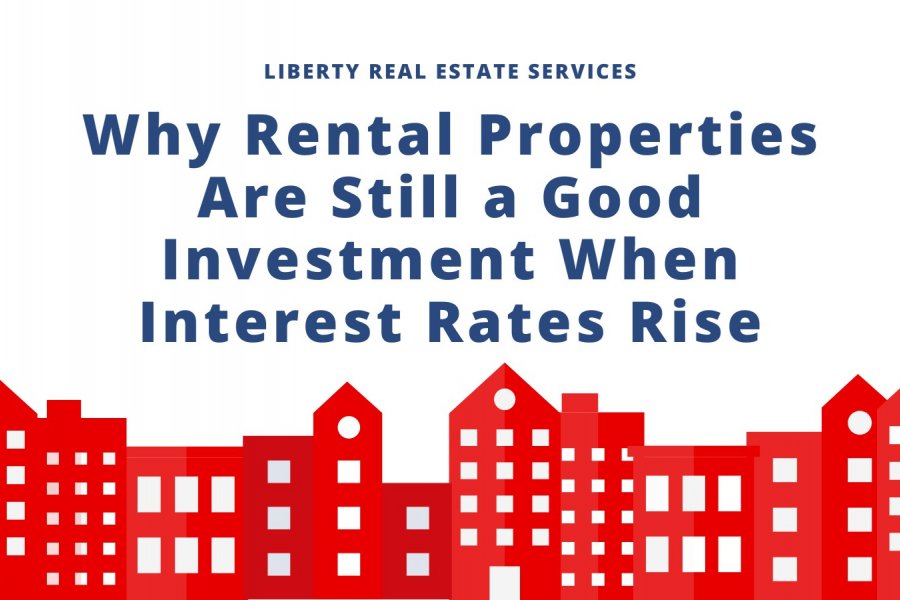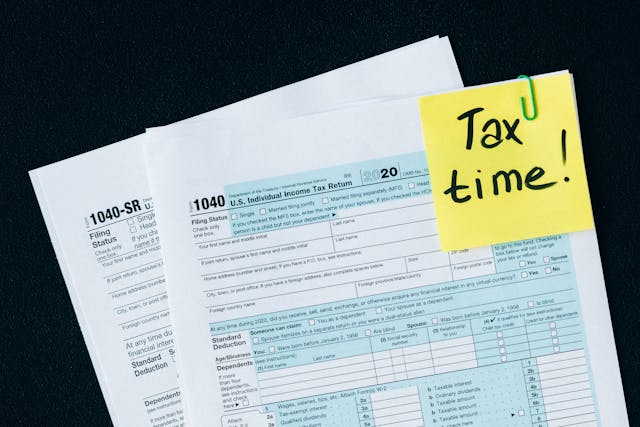
- Rising interest rates often increase rental demand and allow landlords to adjust rents accordingly.
- Real estate remains a tangible asset with long-term appreciation and valuable tax benefits.
- Fixed-rate mortgages and creative financing options help keep investments predictable and profitable.
Is real estate still worth it when borrowing costs go up? Many landlords are asking this question as interest rates continue to climb. While higher rates do increase the cost of financing, that doesn’t necessarily mean rental properties stop being a smart investment.
Liberty Real Estate Services put together this article to explain why rental properties can remain a profitable and stable option for landlords, even during periods of rising interest rates.
Learn How We Can Help You Maximize Your Home’s Potential
Why Higher Interest Rates Don’t Eliminate Rental Property Value
Higher interest rates usually affect financing costs, which can make purchasing a property more expensive. But for landlords, rental properties are not just about buying low. They are about generating steady income and long-term appreciation.
When you look beyond short-term borrowing costs, you’ll see why rental properties can still work in your favor.
1. Rising Interest Rates Often Lead to More Renters
When mortgage rates go up, it becomes harder for many people to qualify for home loans. This pushes more individuals and families to stay in the rental market longer. Increased demand for rental units allows landlords to maintain or even raise rent prices.
In strong rental markets, this can mean higher rental income, which helps offset any additional costs from a higher mortgage rate.

2. Rent Prices Tend to Rise With Inflation
Higher interest rates are usually the result of inflation. Inflation causes the prices of goods and services to increase, including rent. As a landlord, this means you can often raise rents in line with inflation.
Even if your interest rate increases your monthly mortgage payment, rising rent can help protect your profit margins over time.
3. Real Estate Remains a Tangible Asset with Long-Term Growth
Unlike stocks or bonds, rental properties are physical assets. This gives landlords some security in periods of economic uncertainty. Over time, real estate investments typically appreciate, regardless of short-term rate changes.
While the pace of appreciation may vary, owning a property in a good location still offers strong long-term gains. The ability to build equity and benefit from value appreciation doesn’t disappear just because interest rates are higher.
Learn More About Our Company!
4. Mortgage Rates Can Be Locked In
Although interest rates rise, landlords can still lock in current mortgage rates when they buy or refinance. This provides stability for planning long-term investments.
A fixed-rate mortgage ensures that your monthly payment stays the same, even if rates continue to rise in the future. This predictability helps landlords budget and manage their cash flow more efficiently.
5. Expenses Can Be Offset by Tax Benefits
Landlords often have access to several tax deductions that help reduce the impact of higher costs. Mortgage interest, property taxes, depreciation, repairs, and management fees are all typically deductible.

These benefits remain even when interest rates rise, helping landlords manage their bottom line more effectively. While this is not financial advice, understanding your tax options can make a significant difference in your investment’s profitability.
6. Long-Term Tenants Bring Stability
In times of economic uncertainty or when interest rates increase, tenants are more likely to stay in their rental homes longer to avoid the high cost of buying. Long-term tenants reduce turnover, vacancy rates, and the costs that come with finding new renters. This stability can lead to better cash flow and more consistent income over time.
Discover the Benefits of Partnering With Us
7. Creative Financing Options Are Still Available
Even with higher interest rates, landlords can explore other financing strategies. These might include making larger down payments, seeking seller financing, or negotiating interest-only loan periods at the beginning of the mortgage.
Lenders may also offer discount points to reduce the interest rate in exchange for a higher upfront payment. While not all options work for every investor, landlords who explore various strategies can still secure favorable terms.
8. Rental Income Often Outpaces Interest Increases
The gap between rental income and mortgage payments is key to a profitable rental property. Even with higher interest rates, many landlords find that rental income covers the mortgage and leaves room for profit.
This is especially true in areas where rents are increasing or where housing supply is limited. Running the numbers carefully before buying a property can help ensure you are making a smart investment.

9. Diversification Protects Wealth
Including rental property in your investment portfolio helps diversify your assets. During times when stocks or other investments are volatile, real estate often remains stable or continues to grow. This balance can protect your overall financial position.
Rising interest rates may affect other investment types more severely than real estate, making rental properties a more secure option in a diversified portfolio.
10. Landlords Have Control Over Income and Expenses
One of the advantages of owning rental properties is that you have control over how they operate. You can choose when to raise rent, when to refinance, and how to manage repairs and upgrades.
This level of control helps protect your investment from market conditions. With careful planning, you can adjust your strategies to keep your rental property profitable, even in a high-interest-rate environment.
Discover Our Property Management Services!
Bottom Line
Rising interest rates are a concern, but they do not automatically make rental properties a bad investment. In fact, they can create opportunities for landlords.
Increased rental demand, inflation-driven rent growth, long-term asset appreciation, and tax advantages all support the idea that rental properties are still a sound investment choice. With the right approach and careful financial planning, landlords can continue to earn steady income and grow their wealth.
Liberty Real Estate Services is here to support landlords through all market conditions. Our team can help you assess potential investment properties, guide you on financing options, and provide expert property management services to maximize your rental income. Contact us today to learn how we can help you thrive in any interest rate environment.
